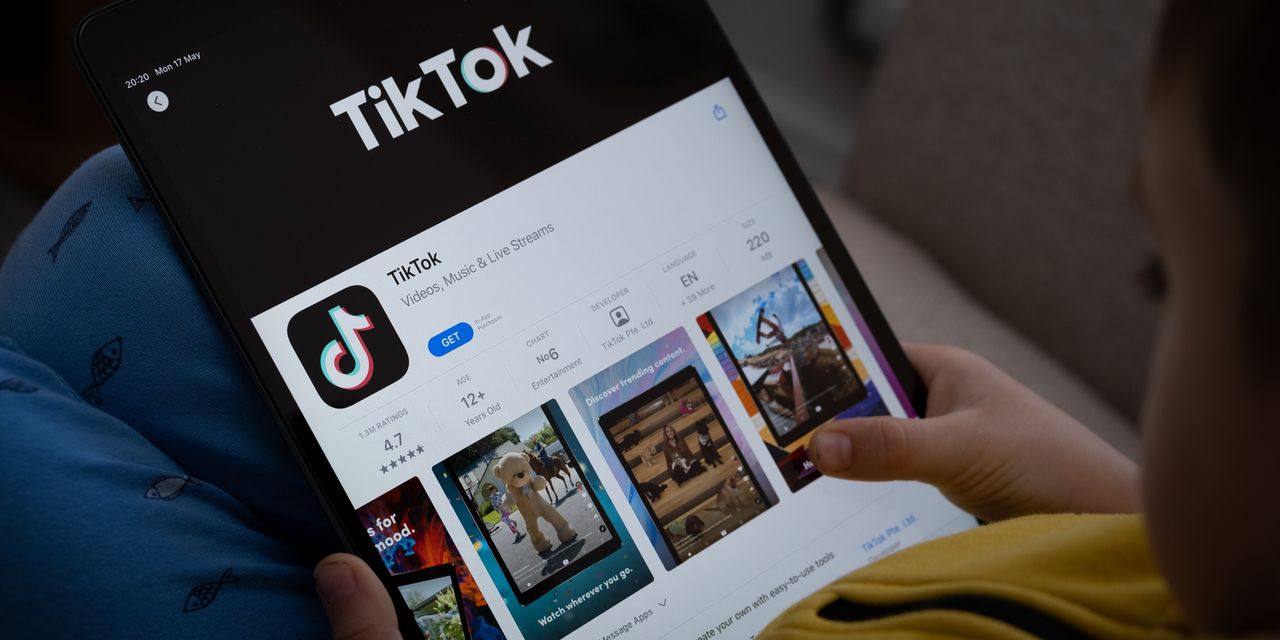The U.S. surgeon general on Tuesday released an advisory that warned about the risks social media platforms may pose for children and adolescents, but Wall Street shrugged.
Dr. Vivek Murthy announced the advisory with a thread on Twitter. It noted social media can expose children to content that presents risks of harm. It also notes social media use can be excessive and problematic for some children.
“Nearly every teenager in America uses social media, and yet, we do not have enough evidence to conclude that it is sufficiently safe for them, especially at such a vulnerable stage of brain, emotional, and social development,” the surgeon general said. “Much of the evidence we do have indicates that there is enough reason to be deeply concerned about the risk of harm social media poses.”
The advisory suggests lawmakers strengthen safety standards and limit access to make social media safer for children. It also suggests they move to better protect children’s privacy, support digital and media literacy, and fund additional research. For parents and caregivers, it suggests they make plans such as establishing tech-free zones and report problematic content and activity.
“Technology companies can better and more transparently assess the impact of their products on children, share data with independent researchers to increase our collective understanding of the impacts, make design and development decisions that prioritize safety and health—including protecting children’s privacy and better adhering to age minimums—and improve systems to provide effective and timely responses to complaints,” the advisory added.
Wedbush analyst Dan Ives called it another red flag for social media concerns in an email to Barron’s.
“This action by the Surgeon General will further fan the flames in the Beltway around social media risks with
Facebook
and
Snapchat
front and center,” Ives added.
A Snap (ticker: SNAP) representative described its Snapchat app as a messaging service for friends, and applauded the “Surgeon General’s principled approach to protecting teens from the ills of traditional social media platforms.”
“Snapchat doesn’t encourage perfection, popularity or stranger contact, and we don’t broadly distribute unmoderated public content, which helps prevent the promotion and discovery of potentially harmful material,” the representative added.
Meta Platforms (META), which owns Instagram and Facebook, and
Alphabet
(GOOGL), which owns Google and YouTube, did not return requests seeking comment.
Despite the warning, social media stocks held up on what was a tough day for the broader market. Snap stock rose 0.4% to $9.80. Meta stock was down just 0.6% to $246.74. Alphabet stock was down 2% to $122.56. The
S&P 500
fell 1.1%, while the
Nasdaq Composite
closed 1.3% lower.
Brian Wieser, founder of strategic advisory firm Madison and Wall and a former executive at GroupM, WPP ‘s ad buying unit, told Barron’s the issues raised aren’t particularly new for those following the social media business.
“What is really important is whether or not civil society does anything,” Wieser said. “It’s one thing to say, ‘well, nothing will happen’ until something does. And so we don’t want to rule it out. But I guess the point is that, by itself, the surgeon general saying something doesn’t do anything.”
Wieser contrasts today to 1999, when the American Academy of Pediatrics recommended parents keep kids away from televisions until at least age 2—a recommendation that’s since been walked back. He noted that decision back then had an impact, but parents of today may not put as much stock in the surgeon general or a group of doctors, he said. He adds that some parents are already struggling to keep their kids off of social media.
“There are clearly parents who are trying to restrict their kids use of phones, but the thing about phones is the parents don’t have control,” he said.
Write to Connor Smith at [email protected]
Read the full article here




